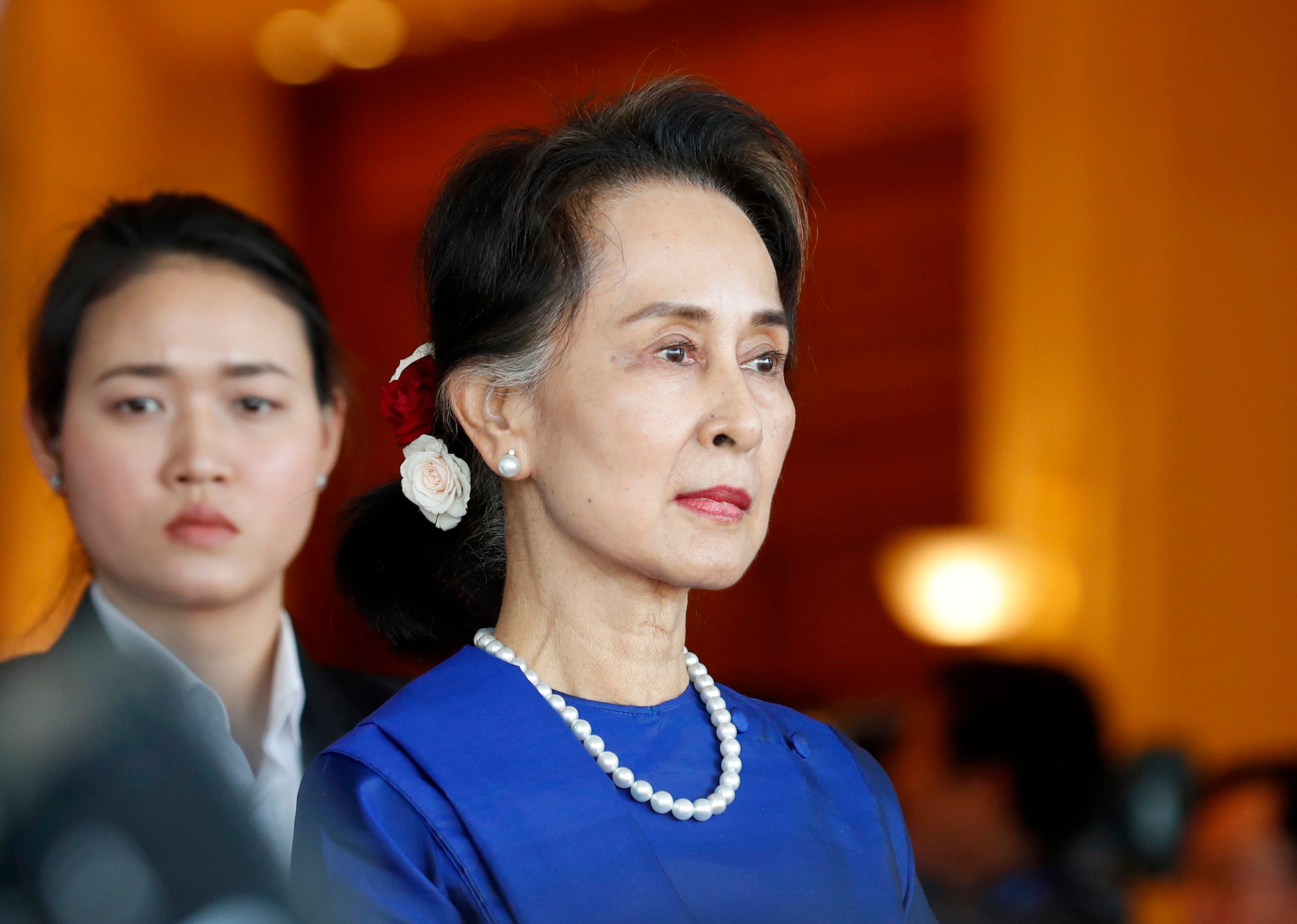World leaders must pressure Myanmar junta to provide treatment to Aung San Suu Kyi, says government-in-exile
Pressure grows for international community to intervene after The Independent reports Suu Kyi is being denied treatment by military authorities

Your support helps us to tell the story
From reproductive rights to climate change to Big Tech, The Independent is on the ground when the story is developing. Whether it's investigating the financials of Elon Musk's pro-Trump PAC or producing our latest documentary, 'The A Word', which shines a light on the American women fighting for reproductive rights, we know how important it is to parse out the facts from the messaging.
At such a critical moment in US history, we need reporters on the ground. Your donation allows us to keep sending journalists to speak to both sides of the story.
The Independent is trusted by Americans across the entire political spectrum. And unlike many other quality news outlets, we choose not to lock Americans out of our reporting and analysis with paywalls. We believe quality journalism should be available to everyone, paid for by those who can afford it.
Your support makes all the difference.Leaders around the world must pressure Myanmar’s military junta into providing immediate medical care for jailed former leader Aung San Suu Kyi, the county’s government-in-exile has said.
The National Unity Government (NUG), a coalition of all the political parties in Myanmar, including prominent pro-democracy figures and members of the former government of Ms Suu Kyi’s party, was responding to reporting by The Independent of growing concern over the health of Ms Suu Kyi.
According to sources within Myanmar, Ms Suu Kyi, 78, had been prescribed a number of medications by the doctor treating her, including for gum disease, which has left her unable to eat due to pain. Yet, a request for treatment has been denied by the junta despite it being made by prison authorities.
Kyaw Zaw, spokesperson for the NUG, said: “The international community should pressure the junta for the healthcare and security of all the political detainees including Aung San Suu Kyi”.
Ms Suu Kyi’s youngest son, Kim Aris, has called her treatment by the military junta “heinous” and “callous”.
“Anyone who has such painful gum disease that they are unable to eat obviously has their entire health at risk if suitable treatment is denied,” he told The Independent, saying that he believed his mother has been experiencing bouts of vomiting and severe dizziness.
Mr Aris also called on military authorities to allow his mother to return to her home in Myanmar’s largest city Yangon – formally known as Rangoon – in order to be treated. Following the coup in February 2021, Ms Suu Kyi was arrested, initially being held at her official residence in the capital before being moved to an undisclosed location widely believed to be on an army base. She was transferred again, this time to prison, on 22 June 2022.
While authorities recently pardoned Ms Suu Kyi over five of the 19 cases against her. that merely brought down the number of years she faces in jail from 33 to 27. At her age, that is still effectively a life sentence. The slew of cases against Ms Suu Kyi is seen by both her supporters and officials in the West as trumped up, aimed at discrediting her in order to legitimise the military’s takeover, while also preventing the former leader from returning to politics.
Many governments, including the US and UK, have called for Ms Suu Kyi’s unconditional release, along with thousands of others who were detained in the junta’s bloody crackdown on protests against its rule.
Ms Suu Kyi spent 15 of the 21 years from 1989 to 2010 under house arrest, winning the Nobel Peace Prize in 1991 for her struggle for democracy. Ms Suu Kyi helped establish the country’s first civilian government in half a century after her party won a landslide in a 2015 election.



Join our commenting forum
Join thought-provoking conversations, follow other Independent readers and see their replies
Comments